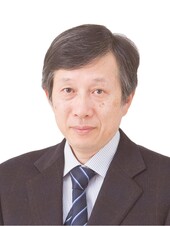Tadayuki Takahashi
|
 |
I study various aspects of high-energy phenomena in the Universe, seen in X-rays and gamma rays. I have performed systematic studies of high-energy emission from black hole jets and supernova remnants, which are thought to be huge particle accelerators in the Universe, by using satellites and rockets. Observations in space require highly advanced detector technologies due to the severe conditions during the launch and in orbit, and also due to the very limited resources available. Through a series of satellite and rocket experiments, we have established cutting-edge technologies to make highly sensitive hard X-ray and gamma-ray detectors.
Recently, it is becoming clear that these technologies also meet the long-standing demands from other fields such as (1) finding hot spots in gamma rays, (2) imaging of muon X-rays from muonic atoms, and (3) in-vivo 3D imaging of small animals to study cancer stem cells. New requirements from these applications are expected to further advance the performance of the detectors and enable us to design future hard X-ray and gamma-ray missions with much higher sensitivities than the present ones.
I would like to organize interdisciplinary activities at the Kavli IPMU to develop advanced detectors to address urgent research topics, particularly in nuclear medicine. In parallel with these experimental activities, I am continuing my research in high-energy astrophysics. One of the main topics will be the study of particle accelerators in the Universe. Understanding the connection between the process of magnetic reconnection and particle acceleration in a wide range of astronomical objects, from the Sun to black holes and clusters of galaxies will also be a subject.
I was appointed as Advisor to the Director on April 1, 2024.
Back to Member List.






